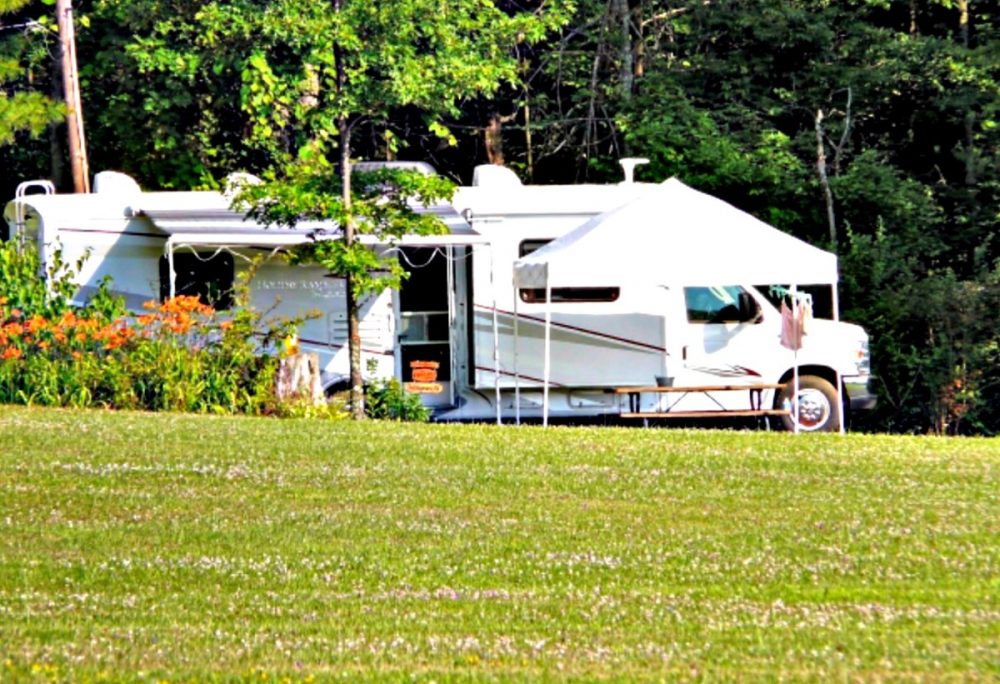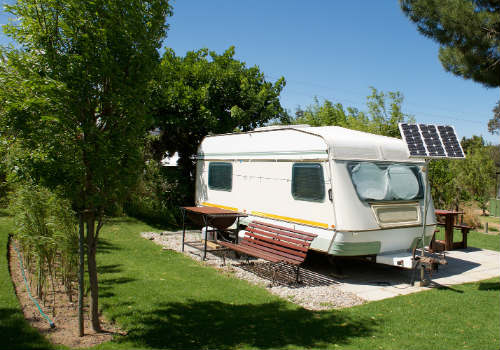Can I live in an RV on my own property?
Tiny homes recently made a huge splash as a way to cut costs and live a minimalist lifestyle. These nifty little homes get creative with storage and still manage to offer many of the same amenities as a full-size house.
 Source: axleaddict.com
Source: axleaddict.com
A recreational vehicle, commonly known as an RV, qualifies as a tiny home even though it’s on wheels. Of course, the attraction of living in an RV is being able to move anywhere. You could theoretically pick up and take a vacation without leaving anything behind!
Of course, there are some serious considerations before jumping into the tiny home lifestyle with an RV. While it’s a hot trend in homes, it’s not necessarily easy to live in one full-time, especially in some places that have set minimums for residential house sizes.
Is it Legal to Live in an RV on Your Own Land?
It depends on your local laws. Yes, you can park and live in an RV on your own land. However, it cannot be your permanent home on the property in some jurisdictions. Of course, in most cases, somebody would have to report you for living in your RV full-time, so it’s possible to get away with it for a while.
The problem stems from the government not recognizing RVs as permanent homes. There have been several rulings about recreational vehicles and their classification over the past several years, which has only muddied the waters.
The issue revolves around difficulty with permits and safety regulations. A home has to fall within certain classifications to qualify as a legal permanent residence. Standard categories include a site building, modular building, or manufactured home. Each type has established parameters for permitting and safety standards, including size.
Can You Use the RV as a Guest House?
Yes! Using an RV as a guest house suggests temporary usage instead of a permanent residence. You could have family or friends stay for a few weeks at a time and treat the RV as an extension of your permanent residence.
Of course, you may want to check on your local laws regarding RV use on your property. There may be special restrictions with your homeowner’s association as well. For example, you may need a permit to rent it out.
Local Housing Codes & Zoning Laws May Not Allow RV Living
Tiny-home owners across America struggle with housing codes and zoning laws that don’t embrace their minimalist lifestyles. It’s not a simple case of buying a tiny home and setting up shop on any piece of land, and there can be differences between building codes and local zoning laws.
Since no blanket building codes currently exist for tiny homes, you have to follow standards for full-size houses. Many of those standards don’t apply to RVs and other tiny homes, like the number of entrances. Additionally, you have to pay close attention to where you park because you can’t get too close to a property line.
Do You Need a Septic Tank or City Sewer?
One barrier to RV and tiny home living relates to plumbing. Not only do you need running water, but you also need to consider sewage. In most cases, your site needs to at least have a septic system that meets local regulations, but some areas require connections to the city sewage system.
Disposal of waste and greywater is a serious concern because of the environmental impact. Septic tanks treat and dispose of wastewater without contaminating the land or clean water supply. However, poorly designed, incorrectly installed septic tanks can cause problems.
The rules for septic tanks and sewer connections exist to preserve the environment. You can’t dump waste and sewage into the ground because of the pollution, and existing sewer lines may not accommodate the excess input. You may be able to install a new connection or get a permit to establish a permanent dump station.
Can You Use a Standard Extension Cord for Electricity?
In most cases, you should be able to run electricity across your land, but there are restrictions, especially for long-term use. Some locations don’t permit a generator or hardwiring a home with wheels (like an RV) to electrical service. When you research the building and zoning codes, it’s a good idea to learn the parameters for electrical use.
 Source: campersmarts.com
Source: campersmarts.com
How Do Homeowners Associations Feel About RV Living?
If you live in a neighborhood with a Homeowners Association, you may want to check their policies about parking RVs. Many HOAs have strict policies regarding RVs, even those reserved for recreational use.
What States Allow You to Live in an RV on Your Property?
In some places, there is hope for tiny homes and RVs. California is the most tiny-home friendly state, but others are following suit.
- Colorado is progressive on many issues, including tiny-home living. City officials in Crede, Colorado, held a special session to address the issue and ease restrictions for RVs and tiny homes, including several opportunities for special permits.
- Florida launched some progressive ordinances directed at tiny homes.
- In Massachusetts, the town of Nantucket considered changing the minimum home size for new builds.
- Michigan created a group of tiny homes to support low-income residents.
- New York launched a micro-apartment building that meant relaxing zoning restrictions to accommodate the smaller residences.
- Oregon is another super-progressive state with massive support for tiny homes, primarily in Portland, where the city supports the construction of tiny homes and communities.
- Several Texas cities accepted the tiny home craze and relaxed building and zoning laws.
Is it Worth it to Live in an RV on Your Own Property?
Living in an RV is a way to reduce your living space to embrace a minimalist lifestyle and even lower your expenses. However, it’s still a new and radical idea in some parts of the country that may land you in legal trouble. If you truly want to explore the lifestyle, it’s a good idea to do your homework to make sure your RV meets your city and state minimums.
